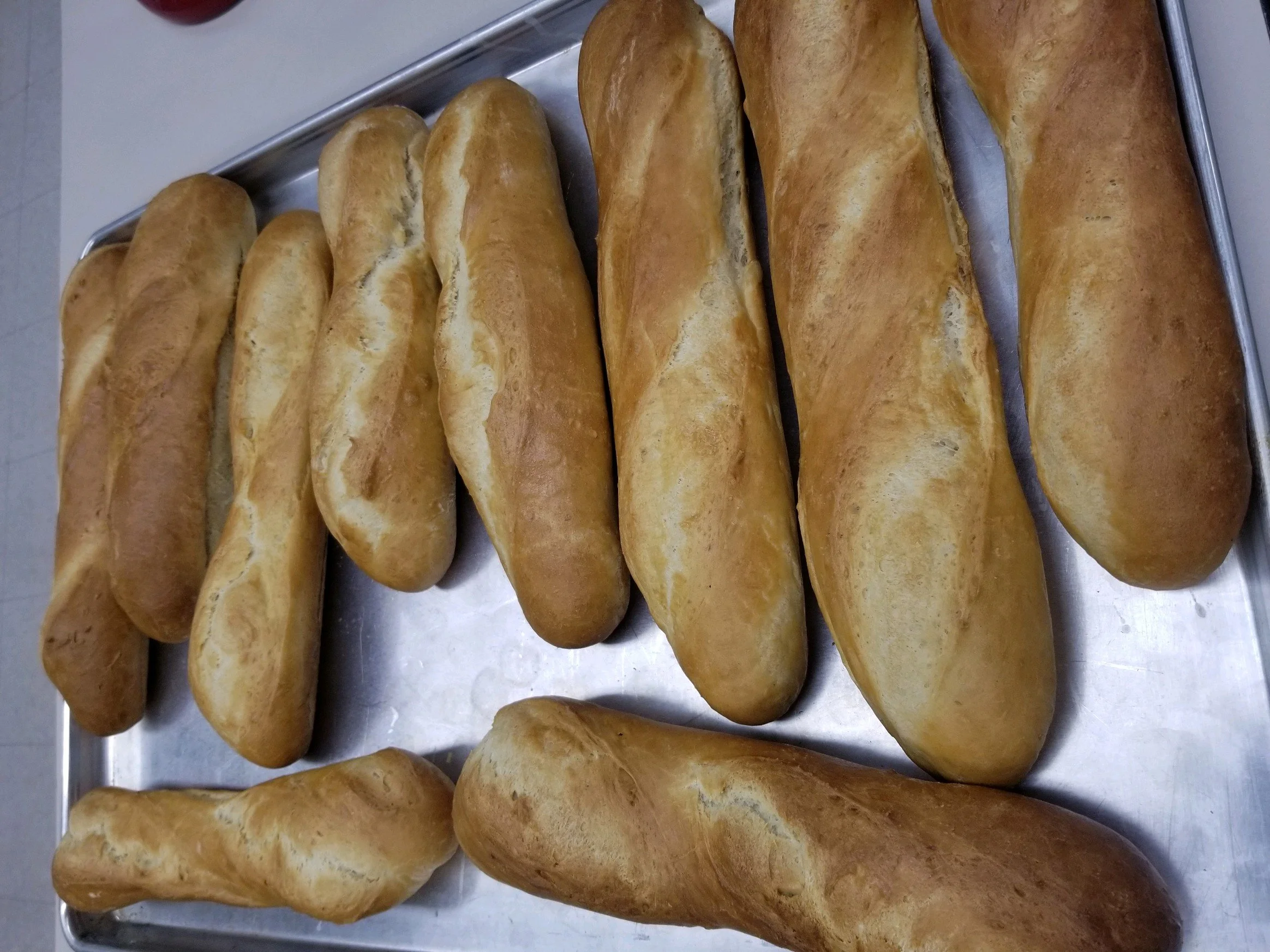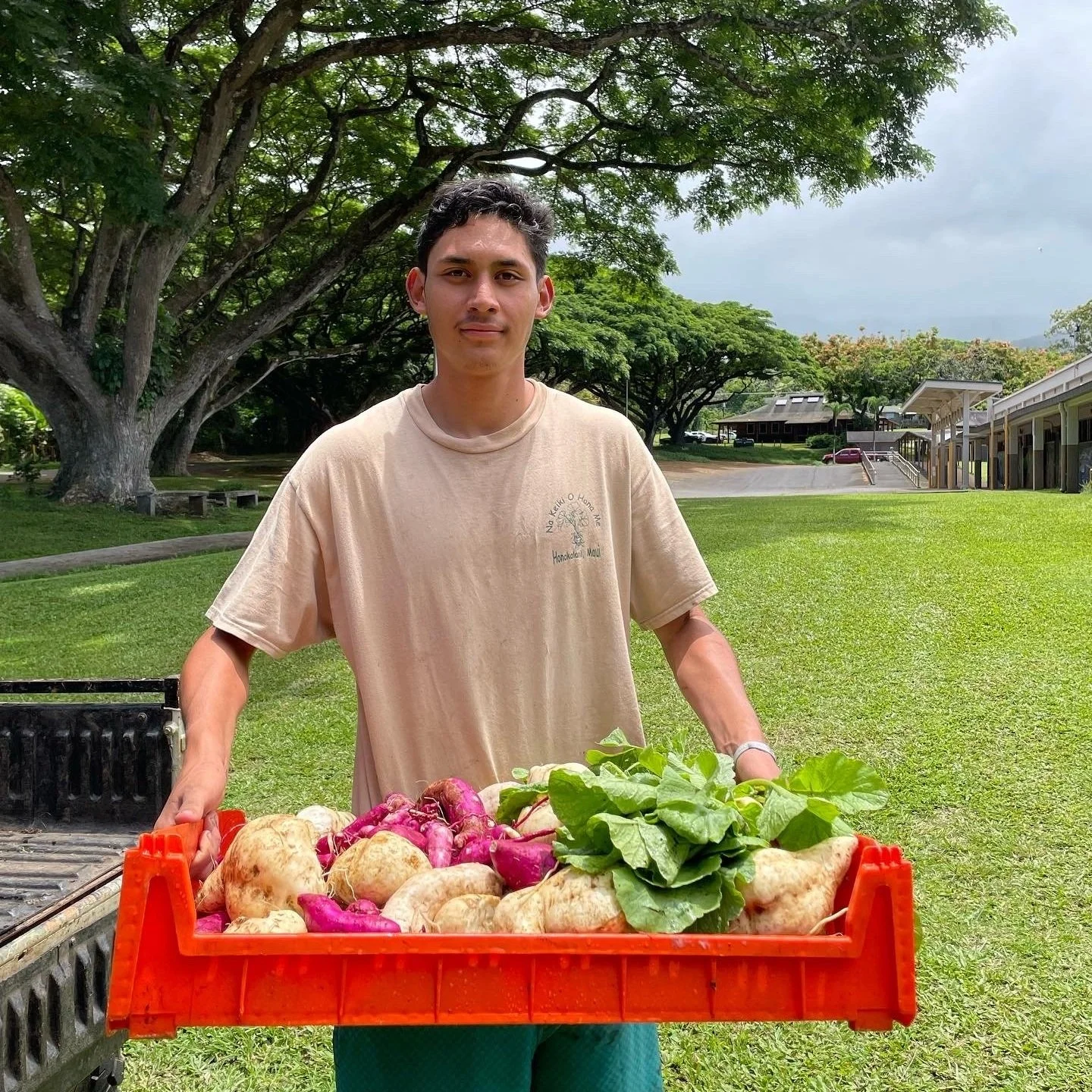introducing the kahu ʻai pono program
boosting students' confidence through culinary arts
Alize learning to make eggplant parmesan in Culinary Arts class
“We're hands-on. Students need to be committed and come in ready to learn,” says Babette, the Kahu ʻAi Pono Program Lead and Culinary Arts Teacher.
Last school year, Babette started in September and taught high school students. This upcoming 2022-2023 school year at Hāna School, Babette will expand her program and lead both high school students and 8th graders in the Culinary Arts pathway—officially launching the Kahu ʻAi Pono Program with Ma Ka Hana Ka ʻIke!
“We started from the very beginning in September of last year—how to boil water and start the stove, knife skills, food safety,” says Babette.
“By the time they left my class, they were baking bread, following recipes, and some didn't need my assistance. Every single day they were cooking, except for one week that we focused strictly on knife safety and skills.”
Fresh French bread made by students
“Kuleana and mālama are some of the values I hope they learn during my class and take with them as they leave,” says Babette. “Being a good citizen, taking care of their kūpuna, and giving back.”
Babette wants to encourage and empower students through the hands-on learning activities and service projects that are integrated in the curriculum.
In the 2021-2022 school year, she noticed students beaming with pride during and after preparing food for Hāna School teachers on Teacher Appreciation Day. It was special and heartwarming to see their confidence boosted through serving others; the teachers were immensely grateful for the ʻono meal of laulau and other comforting dishes.
Laulau preparation
Kimchi for Hāna kūpuna
This upcoming school year, Babette continues to dream big. Her program team now includes Gabby, an experienced Hāna School alumni.
“Having Gabby is like reinforcement. She reads my mind because we've already worked together for so many years. She knows what I'm thinking and what needs to be done in the class and kitchen,” adds Babette.
They will prioritize serving keiki and ʻōpio (young adults) across Hāna School through scheduled fresh snack distributions. The Kahu ʻAi Pono Program will also be a core part of the Garden to Cafeteria efforts—produce grown on campus will be served in school cafeteria meals for students of all ages.
“Our students will be doing production for the output of snacks for the entire school. We'll be growing and using banana, papaya, ʻuala (sweet potato), and more.”
Graduate and student apprentices of Ma Ka Hana Ka ʻIke will be involved in every aspect of Kahuʻai Pono—growing and harvesting food on campus, processing food in the class, distributing snacks and meals to their peers and kūpuna, and assisting Babette and Gabby.
Graduate Apprentice Joshua with ʻuala he planted and harvested on campus
Kahu ʻAi Pono is seamlessly connecting with our Mālama I Nā Hulu Kūpuna Initiative and weekly fresh food distributions to kūpuna. Kahu ʻAi Pono has served items like wāpine tea (lemon verbena), māmaki tea (small native tree with broad leaves), and bread from scratch to the kūpuna. These efforts will continue.
Babette doing a demonstration during class
Babette learned to cook through years of observation and practice. She would watch her mother cook, mainly Chinese and Hawaiian dishes. Through her husband, his family, and their travels, she was exposed to cooking techniques and traditions of Guatemala, El Salvador, Mexico, Peru, Brazil, and Belize. Then, she worked in various food trucks with chefs here in Hāna.
With Kahu ʻAi Pono, Babette is providing the opportunity for Hāna School students to also watch, observe, and learn.
We are excited for the launch of Kahu ʻAi Pono and proud to empower and encourage youth and young adults through a hands-on pathway like Culinary Arts.
Mahalo nui to Babette for sharing part of her story and vision for this brand-new Ma Ka Hana Ka ʻIke program area. Holomua!






